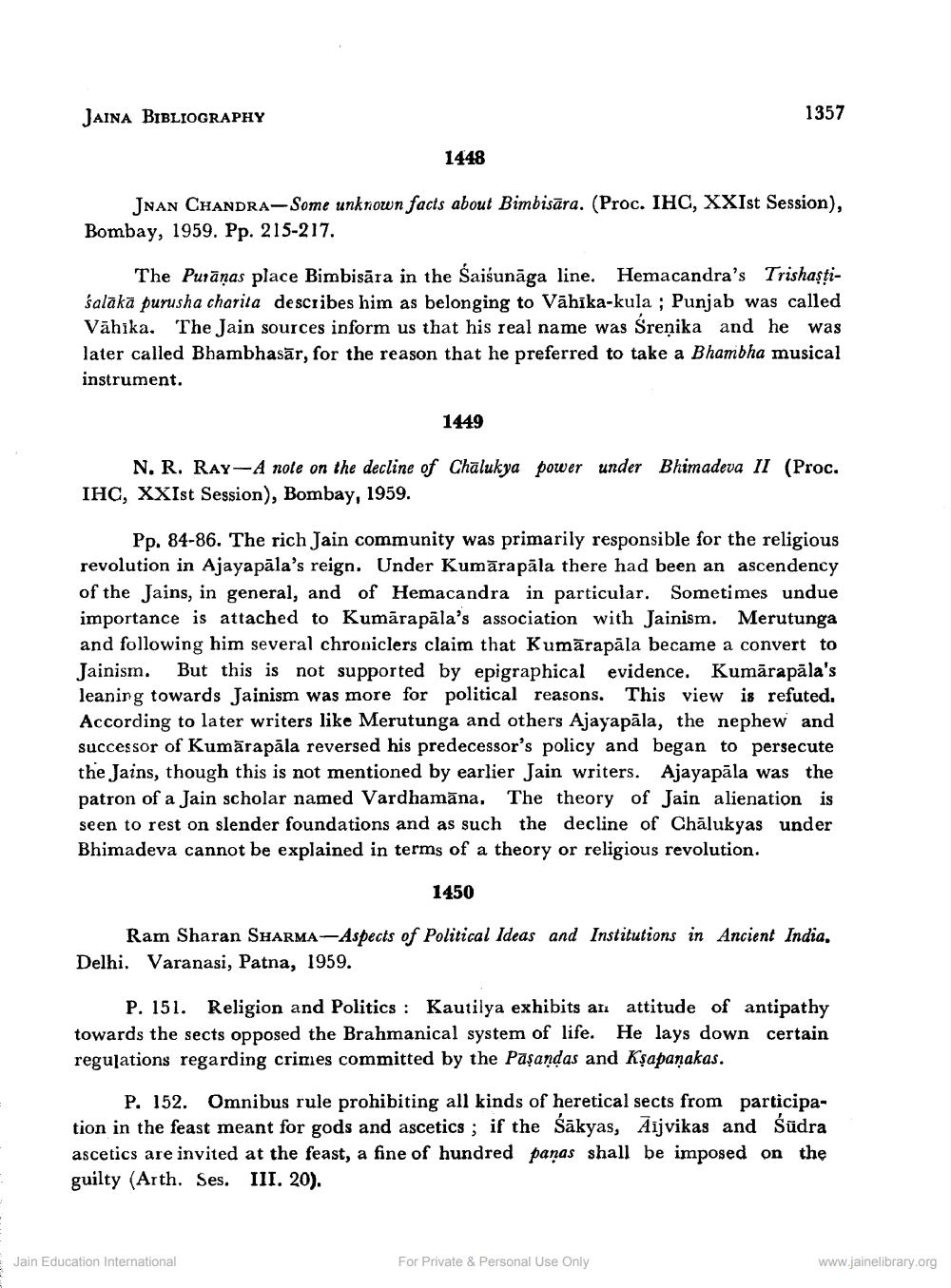________________
JAINA BIBLIOGRAPHY
1357
1448
JNAN CHANDRA-Some unknown facts about Bimbisāra. (Proc. IHC, XXIst Session), Bombay, 1959. Pp. 215-217.
The Purāņas place Bimbisāra in the saišunāga line. Hemacandra's Trishaşțišalaka purusha charita describes him as belonging to Vāhīka-kula ; Punjab was called Vähika. The Jain sources inform us that his real name was Sreņika and he was later called Bhambhasār, for the reason that he preferred to take a Bhambha musical instrument.
1449
N. R. RAY-A note on the decline of Chalukya power under Bhimadeva II (Proc. IHC, XXIst Session), Bombay, 1959.
Pp. 84-86. The rich Jain community was primarily responsible for the religious revolution in Ajayapāla's reign. Under Kumārapāla there had been an ascendency of the Jains, in general, and of Hemacandra in particular. Sometimes undue importance is attached to Kumārapāla's association with Jainism. Merutunga and following him several chroniclers claim that Kumārapāla became a convert to Jainism. But this is not supported by epigraphical evidence. Kumārapāla's leaning towards Jainism was more for political reasons. This view is refuted. According to later writers like Merutunga and others Ajayapāla, the nephew and successor of Kumārapāla reversed his predecessor's policy and began to persecute the Jains, though this is not mentioned by earlier Jain writers. Ajayapāla was the patron of a Jain scholar named Vardhamāna. The theory of Jain alienation is seen to rest on slender foundations and as such the decline of Chālukyas under Bhimadeva cannot be explained in terms of a theory or religious revolution.
1450
Ram Sharan SHARMA-Aspects of Political Ideas and Institutions in Ancient India. Delhi. Varanasi, Patna, 1959.
P. 151. Religion and Politics : Kautilya exhibits ar attitude of antipathy towards the sects opposed the Brahmanical system of life. He lays down certain regulations regarding crimes committed by the Paşandas and Kșapanakas.
P. 152. Omnibus rule prohibiting all kinds of heretical sects from participation in the feast meant for gods and ascetics; if the sākyas, Āijvikas and Śūdra ascetics are invited at the feast, a fine of hundred panas shall be imposed on the guilty (Arth. Ses. III. 20).
Jain Education International
For Private & Personal Use Only
www.jainelibrary.org




